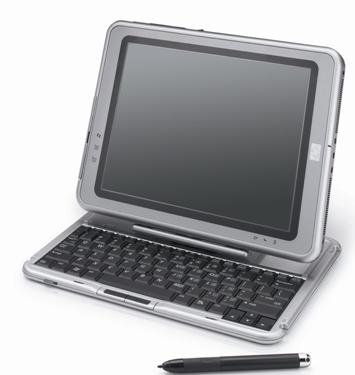Tips for Building a Small Business Computer
Setting up a Wireless Network
for More than One System
Small Business Computer: how to choose the right system? Do you need computer monitoring software? Is setting up a wireless network necessary for your operation? What are the best computer components and accessories for your system? Do you build your own computer, have an expert buy one for you, or purchase a built system?
Building (or buying) the right small business computer can have a big impact on your productivity and the quality of the work you create. You not only need to consider the hardware specifications for your machine, but also ensure that the software is compatible with your computer build. Other important factors and decision points may be the computers compatibility for networking for instance, do you need a built-in network card?
Building a Small Business Computer: Dont Underestimate Your Needs
When it comes to building a computer for business use, many business owners make the mistake of specifying their basic needs; not thinking about the growth for the future (and the future in computing is usually a three to four year life-span). Business owners often reason that the computer will be used primarily for document creation, or other functions that dont require a lot of processing power or hard disk space therefore they may under-specify their needs.
But when building your computer system aim higher than what you think youll need. It is more cost effective to buy computer components that are 'more' than what you need; building a system that is capable of handling your growth and your growing information technology needs.
Small Business Computer: Tablet, Laptop or Desktop?

Before you decide whether or not to build a small business computer system for your operation, decide whether a laptop or a desktop is the best system for you. If you are working on the road and travelling a great deal for business, than purchasing a laptop might be a better option for you than building your own computer.
Desktop systems are more scalable; and can be upgraded if necessary. Laptops are more mobile and can be cheaper (depends on the brand you want and your specifications). You have to weigh your budget and your performance needs against your need for flexibility and mobility. Another issue to consider the type of work you do on the computer: if you need a large screen (for design work, to develop presentations, to schedule production, etc.) than a desktop is more useful for you.
Many business owners have a desktop system in their office, and then have a laptop or a tablet (smaller than a laptop and some with proprietary software meaning you can't run Windows on an Ipad or Ipod for example). If you can afford the desktop with a mobile laptop or tablet, that's the best option if you need size, scale, flexibility and portability!
Once you've built your computer system, and purchased a laptop or a tablet system, you will need to network your computers (whether it's a home office network or an office network if you have more than one system you will need, and want, to network your computers.
Setting Up a Wireless Network
The benefits of a wireless network are mobility: you can work on your desktop system in the office and run your sales presentation for customers on the laptop in your meeting room. A wireless local area network (LAN) is relatively easy to set up and is a better, more flexible, option than a wired LAN. Most wireless LANs are scalable: meaning they can handle a small number of users (systems) to a larger number which is useful for those business owners that are growing their operations.
Setting up a wireless network is an essential part of making an office more productive by increasing information sharing and communication. When you build your computer or purchase desktop or laptop systems, you need to keep in mind your networking plans. If a computer doesnt come with a built-in wireless network card, youll need to buy an adapter separately factor this is when you compare the costs of different models.
Computer System Software: Computer Monitoring Software
In addition to installing operating system software, you need to consider computer applications, system utilities and benchmarking and monitoring software. Computer monitoring software includes anti-virus protection, anti-spyware, and computer firewalls.
For a small business, particularly a start-up, getting the best productivity possible from your employees is key. A number of businesses monitor employee activity on chat rooms, in social media networks and other internet places where they don't want their employees to be. If you plan to monitor and track those activities you need to ensure that you have an Internet usage policy and that your employees receive and sign the policy. In most jurisdictions, you cannot monitor your employees without their consent.
Computer monitoring software allows you to keep track of what websites and programs are being accessed on a computer or network, and how often. You can even use software that will automatically email you a copy of any written correspondence leaving a particular computer. However, don't get carried with monitoring; it's preferable to build an environment where employees understand and accept the rules and regulations of using computers and the Internet.
Additional Reading
Return from Small Business Computer to Ultra Mobile PC
Read How to Build a Gaming Computer
Read More About Green Computers
Or Return from Small Business Computer to Build Your Own Computer Home Page.





